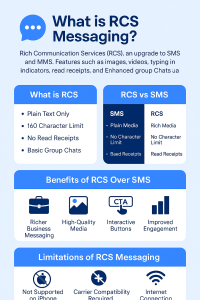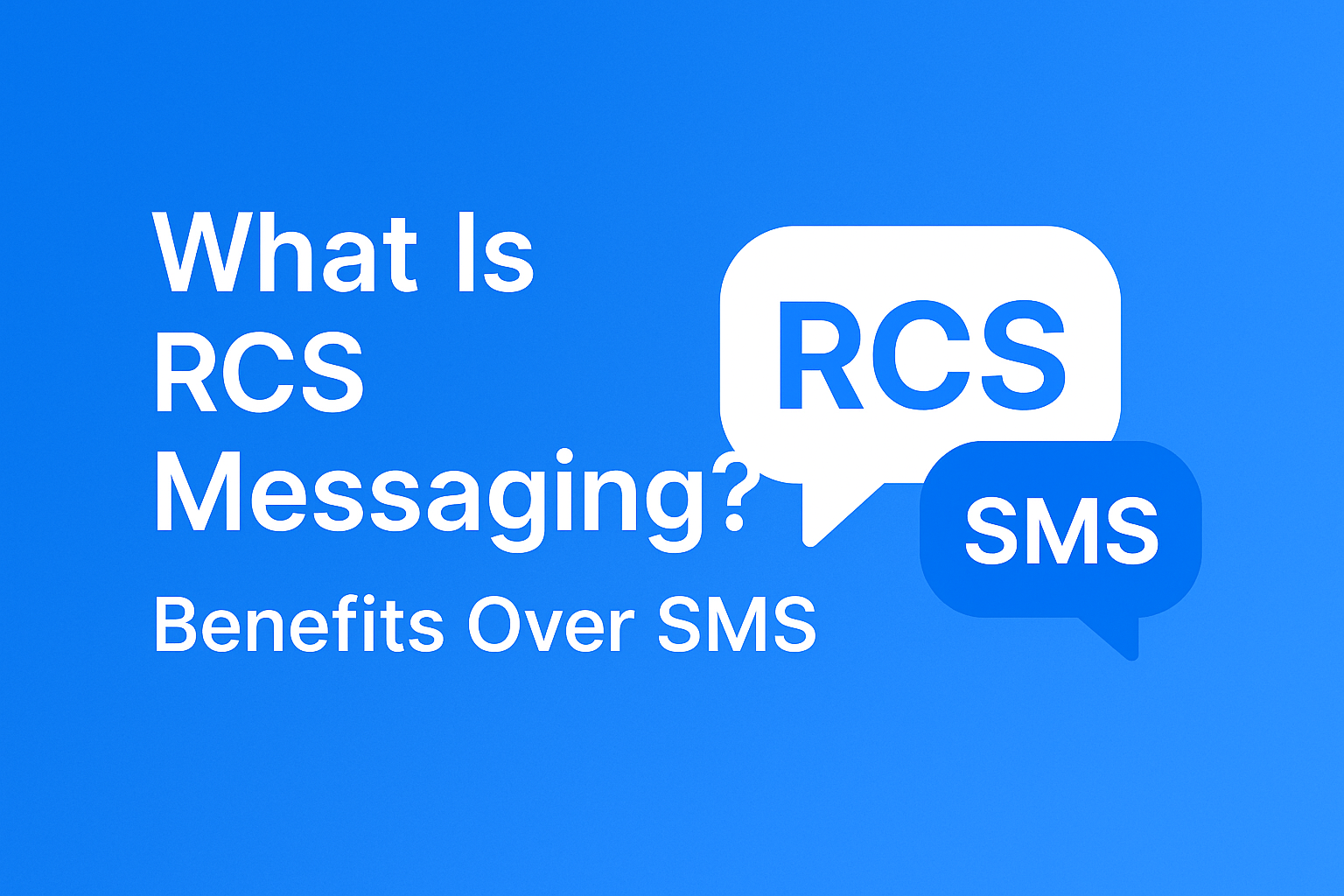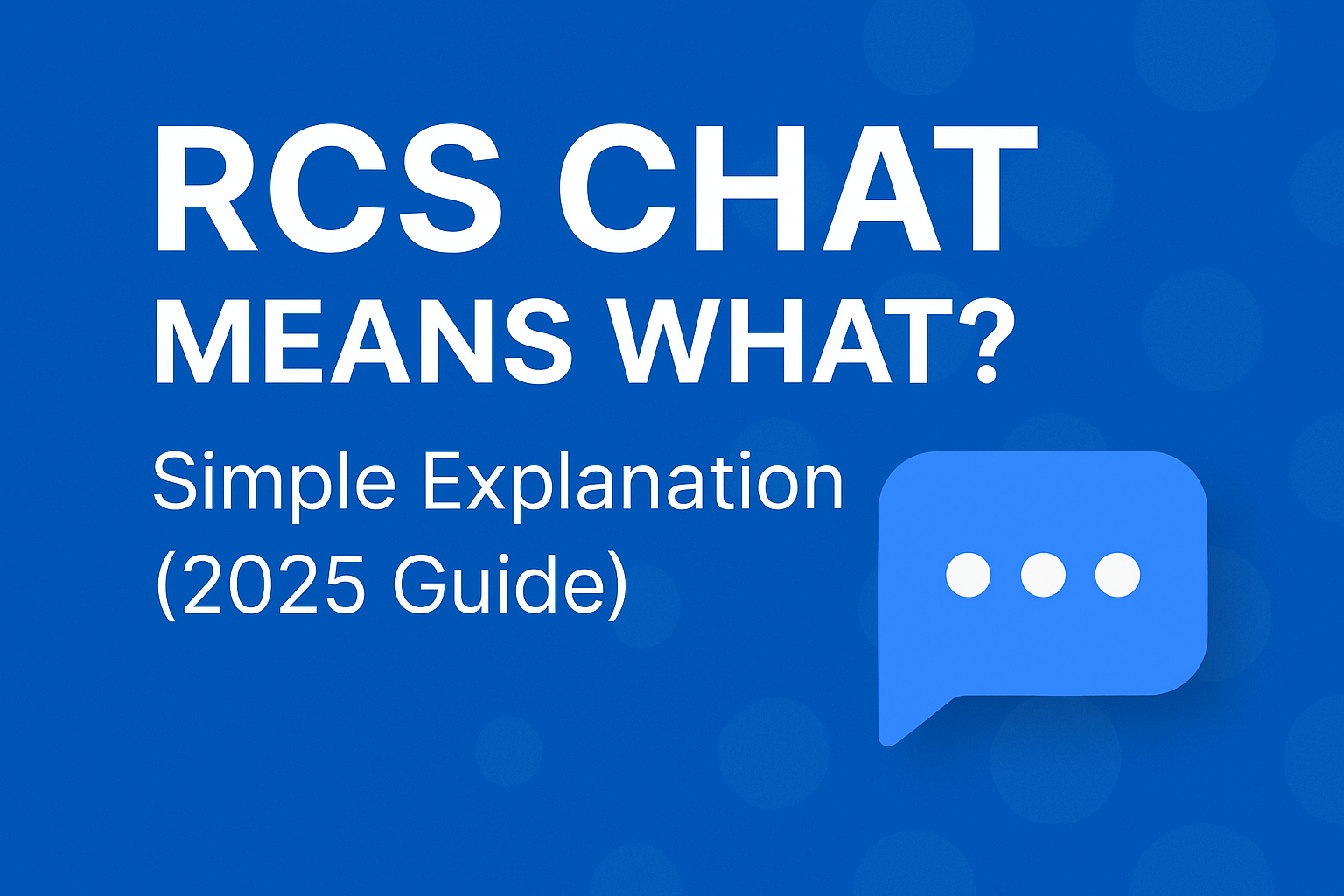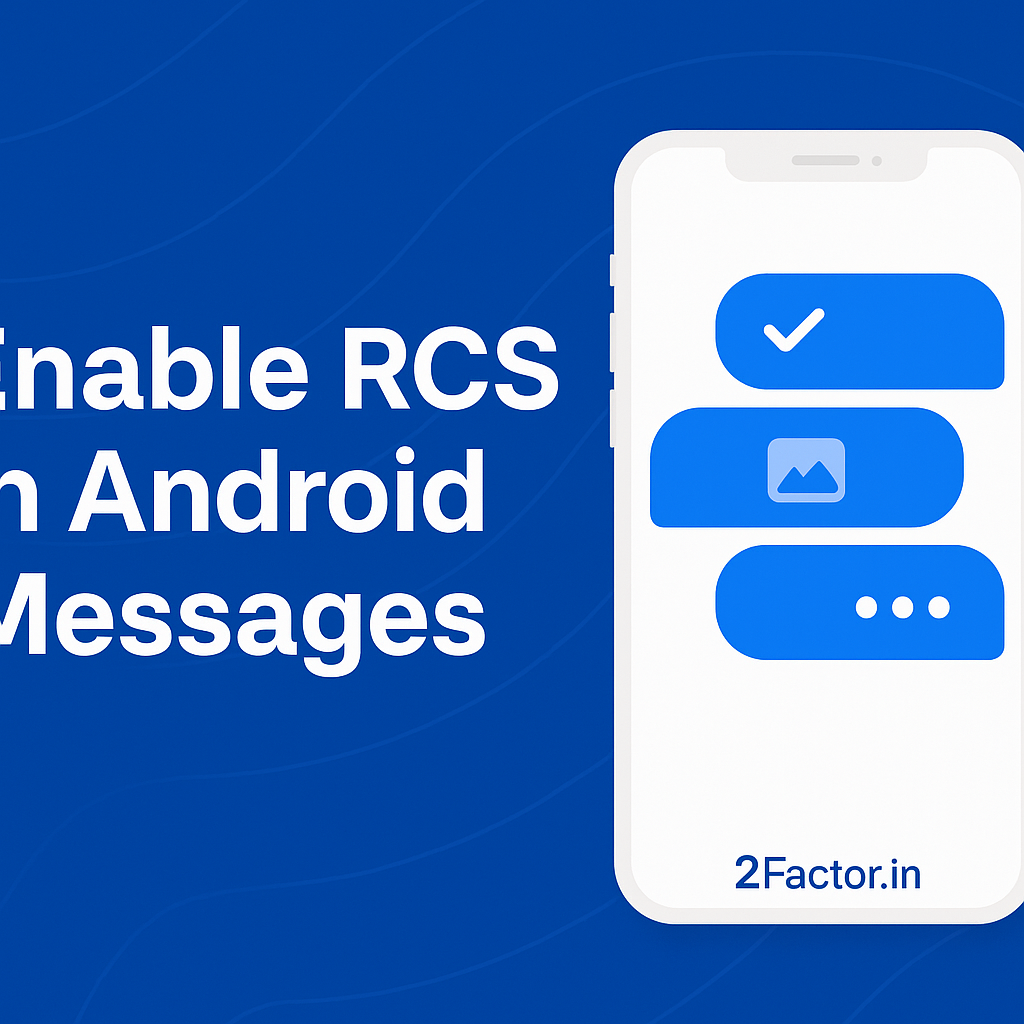What is RCS Messaging? Benefits Over SMS
In today’s fast-paced world of communication, people expect their messaging apps to be smart, fast, and feature-rich. That’s where RCS messaging steps in. But what is RCS chat, and how does it transform the way we communicate? More importantly, how does it compare in the growing debate of RCS vs SMS? In this blog, we’ll answer these questions, explore how RCS SMS works, and explain why it’s the future of mobile messaging for both consumers and businesses.
What is RCS Message?
If you’ve ever wished your default texting app could function more like WhatsApp or iMessage, you’re not alone. That’s exactly what RCS message technology aims to achieve. RCS, which stands for Rich Communication Services, is the next-generation upgrade to SMS and MMS. It allows users to send rich media like high-res photos and videos, see when someone is typing, get read receipts, and enjoy enhanced group chats—all within their standard messaging app.
When people ask what is RCS message, the simplest answer is this: it’s the modern version of SMS. It takes everything people like about instant messaging apps and brings it to your native messaging app without needing any third-party tools. As a result, the experience becomes smoother, smarter, and far more interactive.

What is RCS SMS?
The phrase RCS SMS is often used when talking about how RCS messages are sent through SMS-compatible apps, like Google Messages. Although it sounds like a blend of two separate technologies, RCS SMS is really just RCS functioning within the same space where you’d usually send a traditional SMS. It brings the rich features of RCS to your existing texting experience.
For many users wondering what is RCS message doing differently than SMS, the key lies in how content is delivered. While SMS is text-only and limited in length, RCS SMS lets you send interactive messages, high-quality media, and even buttons for calls-to-action. It’s a significant upgrade in terms of both user experience and business communication capabilities.
RCS vs SMS: What’s the Difference?
Now let’s dive into RCS vs SMS, a comparison that shows just how far messaging technology has come. SMS (Short Message Service) has been around for over 30 years and is still used widely, especially for one-time passwords and alerts. However, it’s very limited: 160-character messages, poor media handling, and no interactivity.
By contrast, RCS—RCS full form being Rich Communication Services—delivers a much richer experience. You can send unlimited text, view when someone is typing, receive read confirmations, and interact with buttons and carousels—all things SMS simply cannot do. In the RCS vs SMS battle, RCS wins easily in terms of functionality and engagement. This is why many experts say that understanding what is RCS message is crucial for the future of mobile communication.
Another big benefit in the RCS vs SMS comparison is branding. Businesses using RCS can send messages with logos, product images, clickable links, and even live updates. SMS, on the other hand, remains static and basic. If you’re still relying on SMS, you’re missing out on the deeper engagement that RCS SMS can deliver
Benefits of RCS Over SMS
Understanding what is RCS message also means understanding the many advantages it holds over traditional texting. First, it’s more engaging—users are more likely to interact with a visually rich message than a plain-text SMS. Second, it enables more secure and branded communication, which is critical for businesses. And third, it gives users the kind of features they’ve come to expect from apps like WhatsApp—without needing to install anything extra.
For brands, RCS SMS opens up a new channel of customer engagement. You can confirm appointments, send promotions, provide real-time support, and drive sales—all with interactive, mobile-friendly experiences. The analytics from RCS (such as delivery confirmations and engagement tracking) also give marketers deep insights, something SMS has never been able to offer.
The RCS vs SMS debate is particularly relevant in industries like banking, healthcare, retail, and logistics. These sectors rely on timely, secure, and interactive communication—which is why so many of them are already moving toward RCS SMS.
Limitations of RCS Messaging
Despite its strengths, RCS SMS does have a few limitations. The biggest issue is that Apple has not yet adopted RCS, meaning iPhone users are still limited to SMS/MMS when chatting with Android users. In addition, both the sender and receiver need to have RCS supported by their mobile network and device for the features to work properly. Understanding RCS chat means relying on modern infrastructure, which not all users may currently have access to.
Another drawback is that RCS requires an internet connection—either mobile data or Wi-Fi. While this isn’t a deal-breaker for most users, it is something to consider in low-connectivity regions. Still, these limitations don’t change the fact that RCS vs SMS remains an easy win for RCS in terms of overall communication quality.
The Future of RCS Messaging
So, what’s next for RCS? With Google pushing global adoption through its Messages app and major telecom providers onboard, RCS SMS is becoming the new standard for Android devices. Pressure is also mounting on Apple to support RCS, which could finally bring cross-platform compatibility and unify the messaging experience.
Understanding what is RCS message and how it differs from SMS is essential for businesses planning their communication strategies. As more features are rolled out and adoption grows, RCS SMS is expected to become the dominant channel for both personal and business messaging.
If you’re still relying on SMS, it may be time to upgrade your approach. The RCS vs SMS discussion isn’t just technical—it’s about meeting customer expectations and building better experiences through smarter messaging.
Conclusion
To sum it up, what is RCS message technology? It’s a powerful upgrade to SMS, built for a richer, more interactive future. Whether you’re a consumer who wants better texting features or a business seeking to deliver more impactful communications, RCS SMS offers undeniable advantages.
The debate around RCS vs SMS is quickly becoming a no-brainer—RCS is simply better. While there are still some adoption hurdles, the benefits far outweigh the drawbacks. The future of messaging is here, and it’s time to make the switch to RCS.


